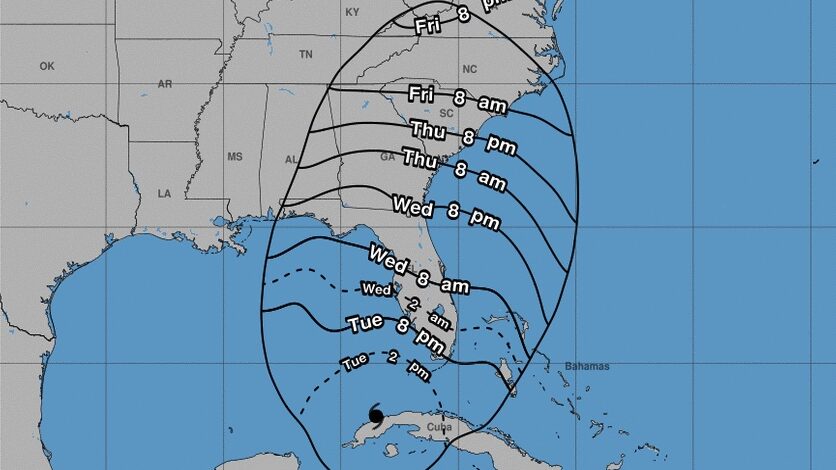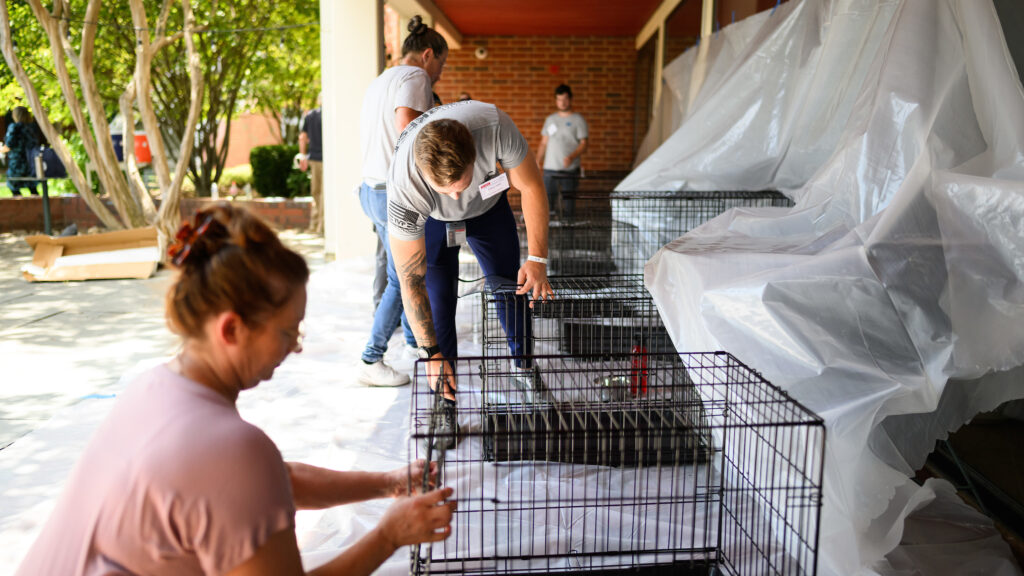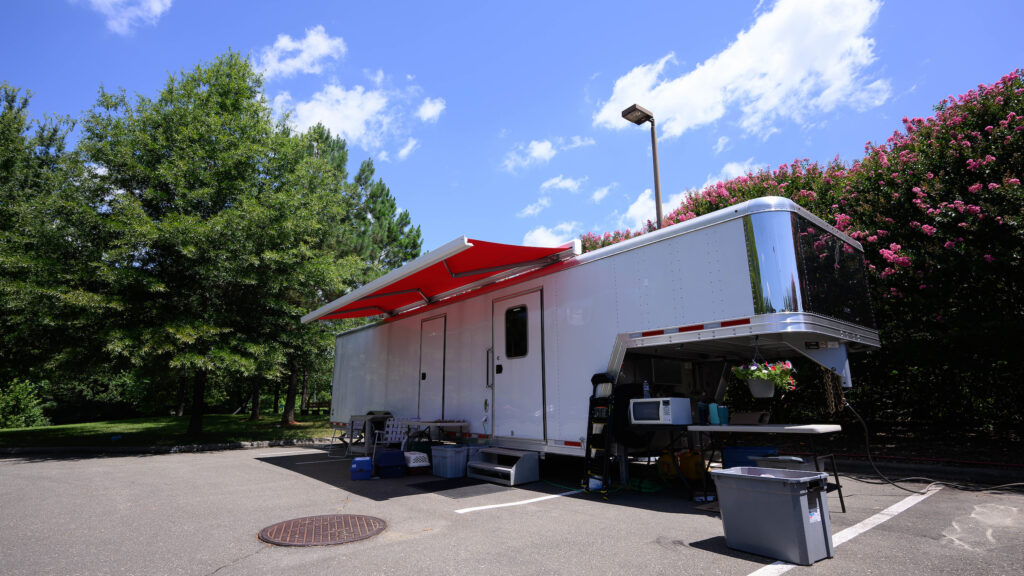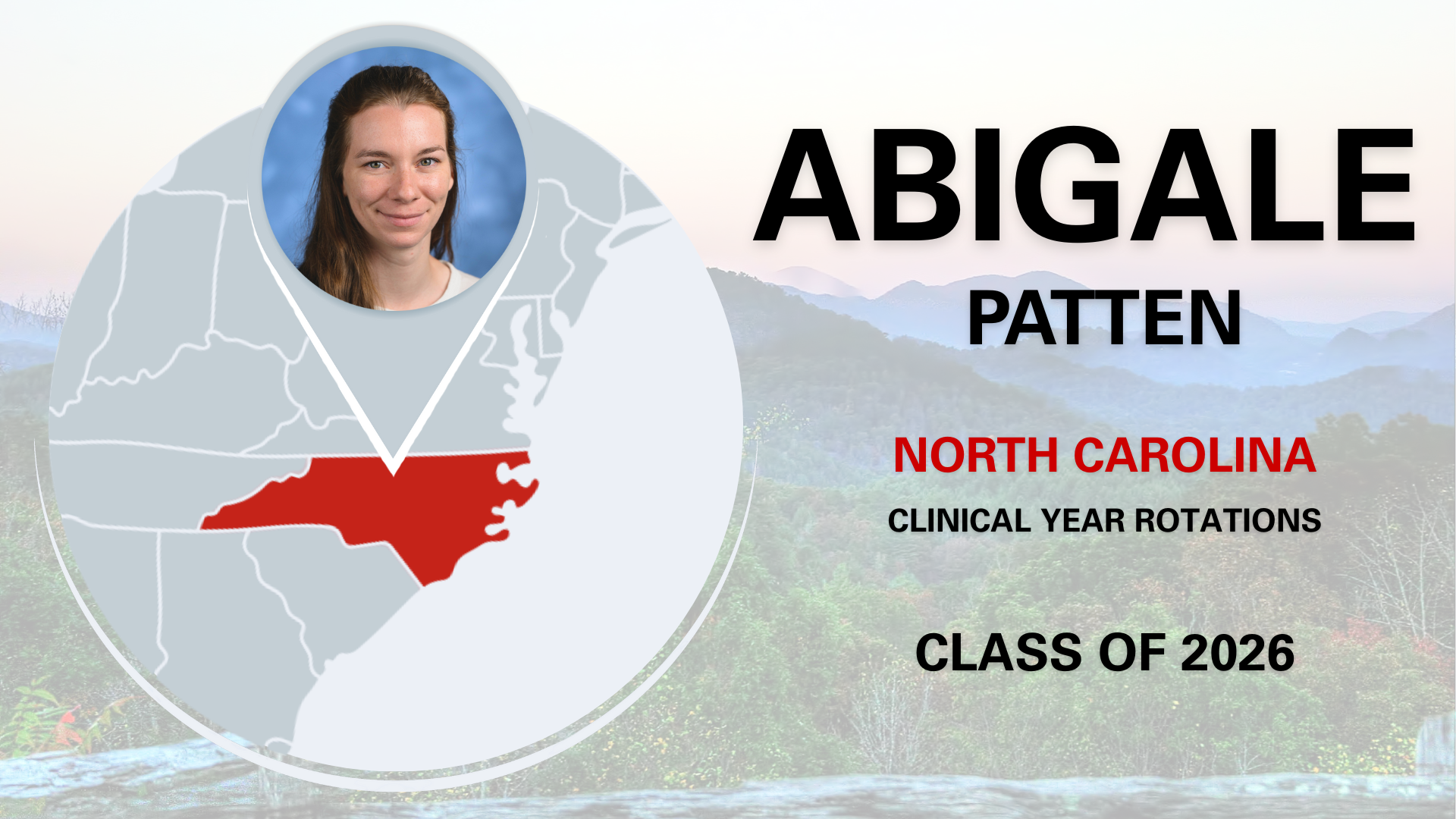As Hurricane Ian intensifies, consider updating your disaster plans – and include your pets

Hurricane season is on full-blown display with Hurricane Ian gathering strength in the Gulf of Mexico following Hurricane Fiona’s recent destructive path through the Atlantic Ocean so updating disaster plans should be top of mind.
Before National Preparedness Month, always in September, winds down, make sure your plans include your pets. Hurricane season lasts through Nov. 30.
Remember to pack supplies, review evacuation procedures and locate possible sources of medical care. If your home becomes unsafe for you, it will also be unsafe for your beloved animals.
The NC State College of Veterinary Medicine has compiled a list of helpful resources here.
The college also helps the community prepare for emergencies in other ways.
Our mobile veterinary hospital has cared for hundreds of animals in the aftermath of multiple hurricanes, and our Disaster Relief Fund supports animals that have been rescued and sheltered.
“After Hurricane Floyd in 1999 we realized that we needed to work together to improve our efficiency and effectiveness,” says Kelli Ferris, clinical assistant professor of animal welfare and leader of the college’s Community-Campus Partnership.

Since then, Ferris has worked extensively with state and local governments to assure an effective coordinated response when disaster strikes, and today NC State conducts training sessions on disaster preparedness for local government officials.
“Our model has since been adopted as the preferred approach throughout the nation,” she says.
When Hurricane Katrina devastated New Orleans and its surrounding area in 2005, Ferris coordinated emergency assistance from North Carolina involving the mobile hospital, 125 kennels for temporary shelter and a team of veterinary students, house officers and veterinary technicians to bolster the efforts of a similar team from the veterinary college at Louisiana State University. By involving NC State veterinary students, the mobile hospital also provides critical real world experience for these budding professionals.
In addition to responding to emergencies, Ferris and the mobile hospital unit provide support for animal shelters providing spay and neuter services, as well as support and shelter for animal cruelty cases.
Last year, the team was able to buy a new mobile hospital with more modern equipment, thanks to donations made through the North Carolina Veterinary Medical Foundation. The mobile hospital’s work is actually made possible by support from the foundation.
With the updated vehicle on the road, the college has even more plans to help the community.
“The mobile hospital under the direction of Dr. Ferris has been an important part of our education and outreach missions,” says Steven Marks, associate dean of the College of Veterinary Medicine and director of Medical Services at the NC State Veterinary Hospital. “Our hope is to be able to continue to deploy the mobile unit into areas of underserved populations and provide affordable veterinary care to pet owners in need.”

- Categories:


